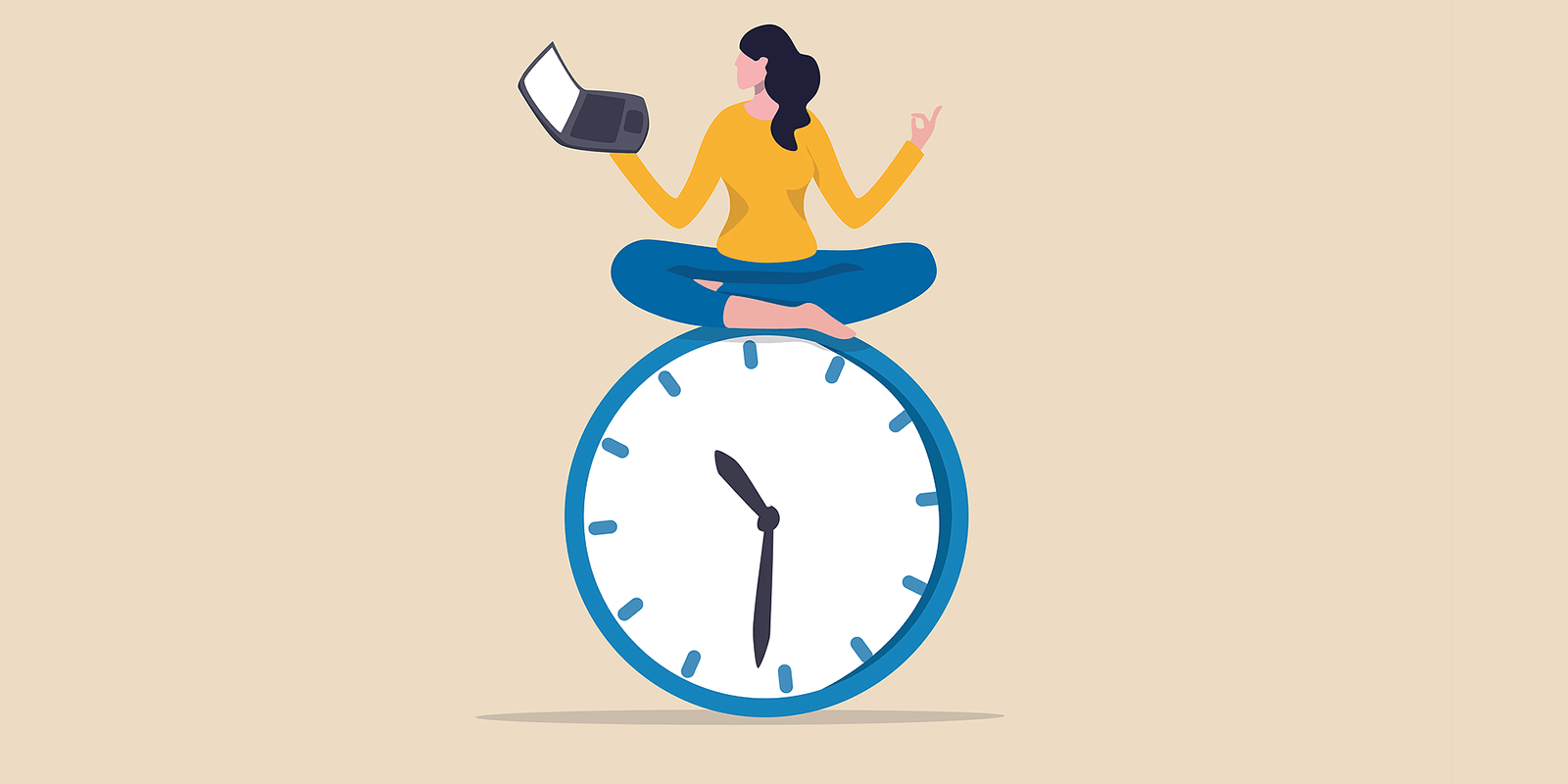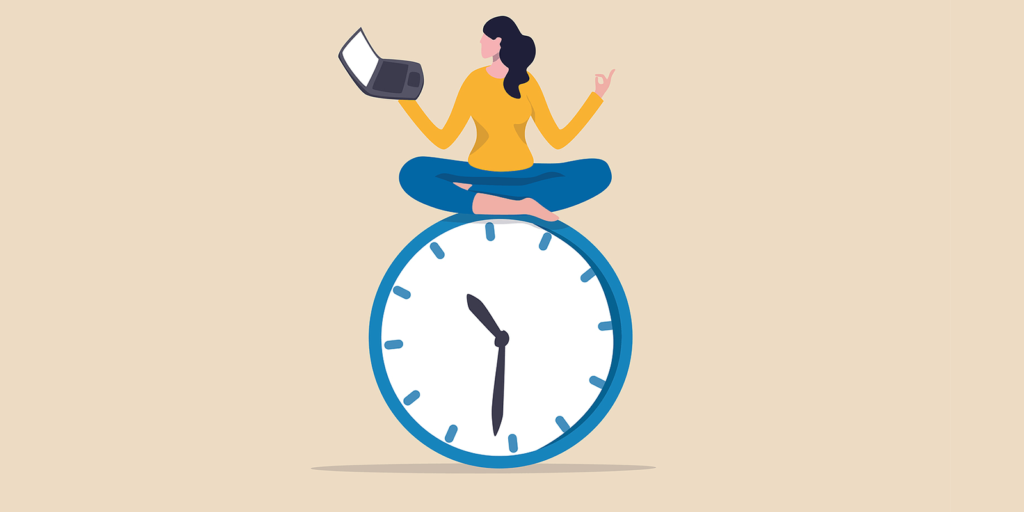Are you struggling to find enough time in the day for everything? Do you often feel overwhelmed and unproductive? If so, this blog post is for you. We’ve rounded up the best tips and tricks to help you maximize your productivity and make the most of your time.
Set Goals
When it comes to time management, setting goals is an essential step towards success. Goals are the roadmap that will guide you on your journey towards productivity. Identifying your long-term and short-term goals will help you stay focused and motivated. Establishing a timeline and breaking your goals into smaller, achievable tasks will help you keep track of your progress and make it easier to reach your desired outcome. Setting goals is the first step to maximizing your productivity and should be done before you move on to any other time management tactics.
Analyze Your Time Usage
After setting your goals, it is important to analyze your time usage. This will give you a better understanding of how you use your time. Ask yourself questions such as “How much time do I spend on each task?”, “What are my biggest time wasters?”, and “What tasks do I keep putting off?”. Knowing how you use your time will help you identify areas where you can make changes to improve your productivity. Once you have identified these areas, you can begin to prioritize your tasks.

Prioritize Your Tasks
Prioritizing your tasks is key to effective time management. You need to be able to identify what tasks are the most important and which ones can wait. It’s also important to remember that not all tasks are created equal – some are more time consuming than others and will require more of your attention. Make sure you’re aware of the time needed for each task and plan accordingly.
You should also create a “to-do” list that you can use to prioritize tasks. This can help you stay organized and on track. Consider grouping tasks into categories such as urgent, important and non-urgent so that you can identify the most important tasks first and work down the list. You can also use the “Eisenhower Principle”, which states that tasks should be sorted into four categories: urgent and important, not urgent but important, not important but urgent, and not important and not urgent. This will help you identify the tasks that are truly important and prioritize them accordingly.
Break Down Large Tasks
It can be challenging to tackle large tasks or projects, especially when it seems like there is no way to break them down into smaller parts. However, this is an important part of effective time management – breaking down large tasks into smaller, more manageable chunks. This will help you make progress and stay on track, while also preventing you from feeling overwhelmed by the task at hand. It also makes it easier to prioritize which tasks should be completed first and which tasks can wait until later. Before beginning any task or project, break it down into small, achievable steps that are easier to manage.
Minimize Distractions
Minimizing distractions is essential for effective time management. It’s easy to get sidetracked and waste precious time on things that aren’t important. To reduce distractions, start by turning off alerts and notifications from your phone, computer, and other devices. Additionally, you can use tools like Freedom and Focus Booster to temporarily block websites and apps that are known distractions. You can also try using the Pomodoro Technique, which involves breaking down work sessions into 25-minute blocks and taking a five-minute break in between. By taking small breaks throughout the day, you’ll be able to stay focused and be more productive.
Create a Routine
Creating a routine is a great way to maximize your productivity. By establishing a regular routine, you can eliminate the need for constantly deciding what to do next. This helps you to remain organized and focused on the task at hand. It also allows you to anticipate tasks and plan ahead, so that you can stay on top of your workload. Additionally, having a routine helps to build positive habits and reduce stress. To create a routine, start by assessing your typical day. Take note of any tasks that you do on a regular basis and identify any areas where you could use some improvement. From there, create a schedule that works for you and stick to it. While it can be difficult to maintain a strict schedule, make sure to be flexible when needed. Finally, don’t forget to reward yourself for sticking to your routine. This could include taking a break after a productive day or treating yourself to something special. Doing so will help you stay motivated and keep your routine in place.
Focus on the Present Moment
The present moment is all we truly have. It is important to stay mindful of this when managing our time. Focusing on the present moment helps us to remain productive and in control of our tasks. To stay focused on the present, it can be helpful to break down large tasks into smaller, more achievable goals. This way, you can focus on the task that is in front of you instead of worrying about the entire project. Additionally, make sure to take regular breaks throughout the day to give your mind a chance to refocus and recharge. Taking small breaks throughout the day can help you stay productive and focused.
Learn to Say No
Learning to say no is an integral part of effective time management. When we agree to do something, we are committing our time and energy to that task. We need to be mindful of how much we are taking on and be willing to decline requests if they will interfere with our goals. It’s important to be able to say no to things that don’t align with our priorities and goals. This will free up more time for tasks that are important and help you stay focused on what’s important.
Delegate Tasks
When it comes to time management, delegation is key. It can be difficult to delegate tasks, especially when you feel you can do them better than anyone else. However, delegating tasks allows you to focus on tasks that require your attention, freeing up your time for more important tasks. It also gives other people a chance to take on more responsibility and grow their skills. When delegating tasks, it is important to make sure that you provide clear instructions and offer support when needed. This way, everyone involved is on the same page and the task can be completed efficiently.
Take Regular Breaks
Regular breaks throughout the day can help you stay productive and focused. Taking a break allows your brain to recharge, so you can come back to your tasks with fresh eyes and a new perspective. Not to mention, it can help you avoid feeling overwhelmed or burnt out. So, make sure to get up from your desk and move around, take a walk, or simply step away from your work for a few minutes each day. You’ll be surprised how much more productive you can be when you take a break.



